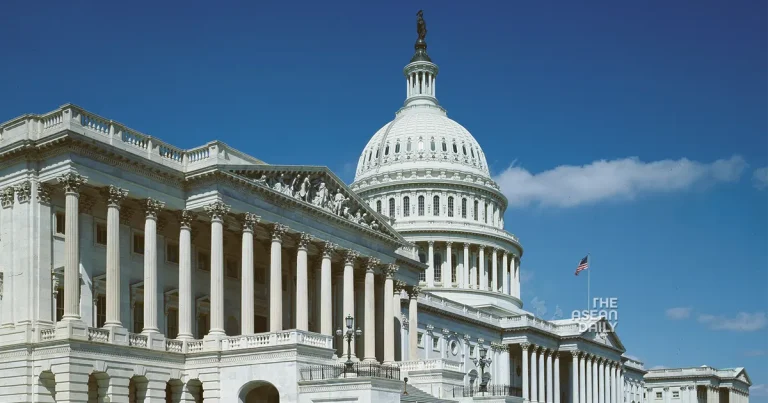24-4-2024 (WASHINGTON) In a decisive move late Tuesday, the U.S. Senate overwhelmingly approved a $95 billion war aid package destined for Ukraine, Israel, and Taiwan. After months of heated debate and delays, the legislation now awaits President Joe Biden’s signature, marking a significant step in determining America’s role in foreign conflicts.
The bill, endorsed by a resounding 79-18 Senate vote, follows the House’s approval of the package last Saturday. President Biden, who actively collaborated with congressional leaders to secure backing, promptly announced his intention to sign the bill on Wednesday. The primary focus of the aid is directed towards Ukraine, grappling with Russian aggression on its borders.
In a statement following the Senate’s decision, Biden heralded the bipartisan effort, citing the historic significance of the moment. He reiterated the U.S.’s commitment to supporting allies during critical junctures in history.
Aside from the $61 billion earmarked for Ukraine’s defense, the aid package includes $26 billion for Israel, providing both wartime assistance and humanitarian relief for Gaza’s citizens. Additionally, $8 billion is allocated to counter Chinese threats in Taiwan and the broader Indo-Pacific region. U.S. officials anticipate a swift delivery of approximately $1 billion in aid, with the remainder to follow in the ensuing weeks.
Senate Majority Leader Chuck Schumer underscored the necessity of passing the aid, warning of dire consequences had it been delayed. He emphasized the Senate’s message to allies: unwavering support during times of conflict.
The bipartisan effort to push the legislation through both chambers highlights the gravity of the situation. Senate Republican Leader Mitch McConnell hailed the passage as one of the most significant events during his tenure, emphasizing the importance of standing against isolationist sentiments.
Despite initial opposition, the aid package garnered increased Republican support, with 31 senators ultimately backing the measure. The House echoed this sentiment with a 311-112 vote in favor of the Ukraine portion.
The urgency of providing assistance to Ukraine is underscored by its dire need for additional firepower in the face of escalating Russian aggression. President Biden assured Ukrainian President Volodymyr Zelenskyy of swift approval and substantial support, particularly in bolstering air defense capabilities.
In a bid to secure further support, Republicans included provisions such as a potential ban on TikTok within the U.S. if its Chinese owners fail to divest within a year. These amendments, alongside others, helped garner broader backing for the aid package.
The aid package’s passage signifies a pivotal moment in U.S. foreign policy, highlighting the divide within the Republican Party between proponents of international assistance and those advocating for a more inward-looking approach. This schism may have lasting implications for key Republican figures such as McConnell and House Speaker Mike Johnson, who faced challenges from within their own party over their support for the aid.
While the aid package enjoys broad congressional support, opposition persists, particularly from left-wing senators critical of aiding Israel amid ongoing conflicts. Senators Bernie Sanders and Jeff Merkley voted against the package, calling for an end to U.S. involvement in what they perceive as unjust wars.




